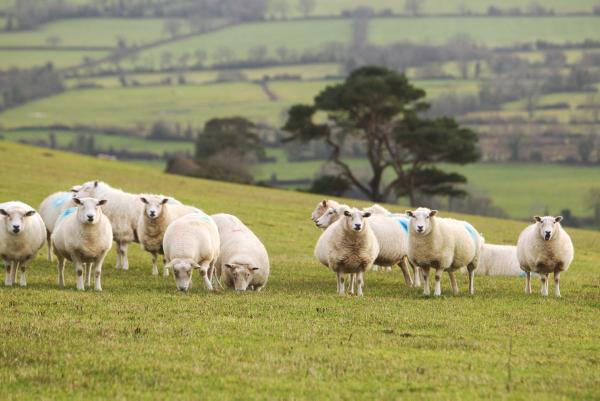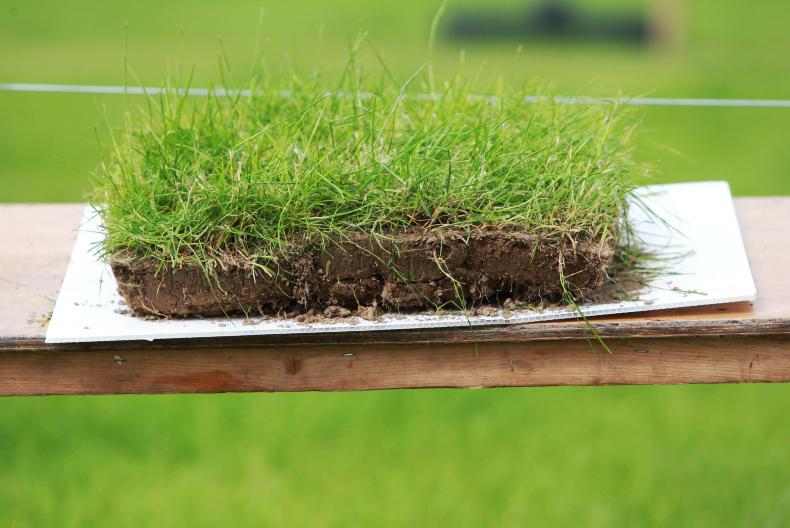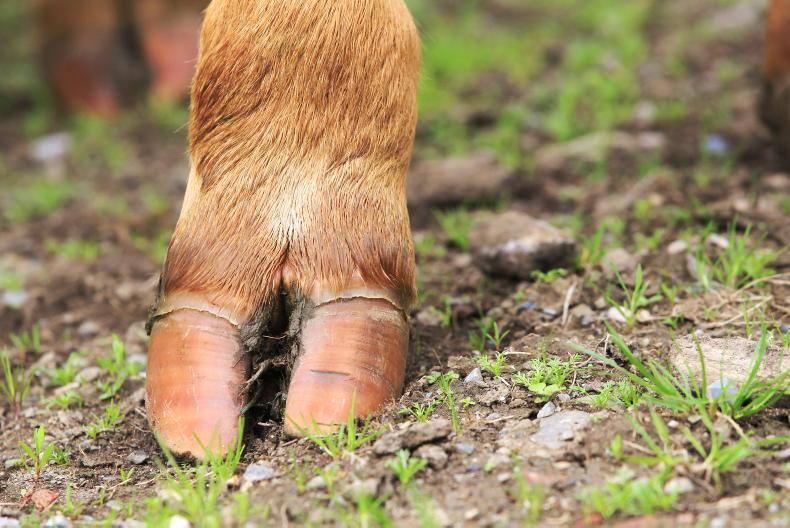Farmers in Westport expressed concern at new details of GLAS and minimum stocking rates for commonages outlined at the Department of Agriculture’s information meeting. It finished with farmers saying they would not join GLAS unless there were further revisions.
The key points made at the meeting were:
Farmers will have to pay for a Commonage Management Plan (CMP), so-called master plans prepared for all commonages by approved planners. All applications to GLAS involving commonage land will have to be based on a CMP. This is the key sticking point on the new scheme. Farmers pointed out that the cost of a CMP could be high, particularly where a commonage is big, but there remains just a small number of active shareholders to pay for a plan. The Department previously paid for Commonage Framework Plans, which filled a similar role. Collective agreement is still a requirement for commonage farmers to qualify as Tier 1 priority applicants, going to the top of the queue in the event of GLAS being oversubscribed. It requires that at least 50% of the active shareholders on a commonage, or alternatively shareholders owning at least 50% of the land, sign up to the CMP. In a concession, collective agreement will not apply for the small number of farmers with no more than 10ha of commonage. They will get Tier 1 priority entry automatically. Active farmers would be able to fully stock a commonage, up to overall CMP limits. But if an inactive shareholder then decided to resume grazing these, farmers would have to reduce numbers to make way. Stocking rates
The Department officials outlined the new minimum stocking rates that will now apply to commonage. These are aimed at tackling the now widespread undergrazing and growth of permanent scrub that resulted from compulsory destocking of commonage a decade ago.
Commonage will have to be stocked at 0.1LU/ha in order to be eligible for claiming the new basic/greening payments and ANC payments (new Disadvantaged Areas scheme).
“The option of doing nothing with commonage land is gone,” the officials said. Farmers will have until 31 December 2015 to meet this threshold. A CMP may stipulate a higher minimum stocking rate to tackle overgrown commonage.
By 31 December 2016, GLAS participants must meet the individual minimum stocking number outlined for them by the CMP.
By 31 December 2018, the total minimum stocking numbers required under the CMP must be in place. This may require the active farmers on a commonage to stock above their individual minimum stocking rate.
Senior inspector Liam Fahy outlined that EU direct payments to commonage farmers will increase by €38m as a result of convergence cuts made on other farmers.
This will bring average payment under the basic/greening scheme on commonage up towards the national average of €150/ha.
Adding a further €100/ha from ANC and €120/ha from GLAS (on up to 42ha) meant farmers would receive up to €370/ha on their commonage – once it is kept eligible and actively used.
“That’s a significant amount of money,” said Fahy.
Eligibility of land including commonage would be the subject of EU audits next spring, he warned. The huge areas of commonage that are now overgrown would have to be brought back to grazing condition, including by controlled burning, and this will be stipulated in CMPs.
Fahy said the Department was seeking legal advice as to whether requiring active farmers to burn commonage could infringe the property rights of other shareholders.
Farmers were critical of Minister for Agriculture Simon Coveney for refusing to engage with commonage farmers before submitting the draft GLAS plan to Brussels
Tom Turley, IFA Connacht vice-president, said that the Department should pay for CMPs and if necessary charge farmers accordingly when they apply to join GLAS.
“Proper consultation between the Department and farmers is necessary to make the scheme workable for commonage,” he said.
Farmers in Westport expressed concern at new details of GLAS and minimum stocking rates for commonages outlined at the Department of Agriculture’s information meeting. It finished with farmers saying they would not join GLAS unless there were further revisions.
The key points made at the meeting were:
Farmers will have to pay for a Commonage Management Plan (CMP), so-called master plans prepared for all commonages by approved planners. All applications to GLAS involving commonage land will have to be based on a CMP. This is the key sticking point on the new scheme. Farmers pointed out that the cost of a CMP could be high, particularly where a commonage is big, but there remains just a small number of active shareholders to pay for a plan. The Department previously paid for Commonage Framework Plans, which filled a similar role. Collective agreement is still a requirement for commonage farmers to qualify as Tier 1 priority applicants, going to the top of the queue in the event of GLAS being oversubscribed. It requires that at least 50% of the active shareholders on a commonage, or alternatively shareholders owning at least 50% of the land, sign up to the CMP. In a concession, collective agreement will not apply for the small number of farmers with no more than 10ha of commonage. They will get Tier 1 priority entry automatically. Active farmers would be able to fully stock a commonage, up to overall CMP limits. But if an inactive shareholder then decided to resume grazing these, farmers would have to reduce numbers to make way. Stocking rates
The Department officials outlined the new minimum stocking rates that will now apply to commonage. These are aimed at tackling the now widespread undergrazing and growth of permanent scrub that resulted from compulsory destocking of commonage a decade ago.
Commonage will have to be stocked at 0.1LU/ha in order to be eligible for claiming the new basic/greening payments and ANC payments (new Disadvantaged Areas scheme).
“The option of doing nothing with commonage land is gone,” the officials said. Farmers will have until 31 December 2015 to meet this threshold. A CMP may stipulate a higher minimum stocking rate to tackle overgrown commonage.
By 31 December 2016, GLAS participants must meet the individual minimum stocking number outlined for them by the CMP.
By 31 December 2018, the total minimum stocking numbers required under the CMP must be in place. This may require the active farmers on a commonage to stock above their individual minimum stocking rate.
Senior inspector Liam Fahy outlined that EU direct payments to commonage farmers will increase by €38m as a result of convergence cuts made on other farmers.
This will bring average payment under the basic/greening scheme on commonage up towards the national average of €150/ha.
Adding a further €100/ha from ANC and €120/ha from GLAS (on up to 42ha) meant farmers would receive up to €370/ha on their commonage – once it is kept eligible and actively used.
“That’s a significant amount of money,” said Fahy.
Eligibility of land including commonage would be the subject of EU audits next spring, he warned. The huge areas of commonage that are now overgrown would have to be brought back to grazing condition, including by controlled burning, and this will be stipulated in CMPs.
Fahy said the Department was seeking legal advice as to whether requiring active farmers to burn commonage could infringe the property rights of other shareholders.
Farmers were critical of Minister for Agriculture Simon Coveney for refusing to engage with commonage farmers before submitting the draft GLAS plan to Brussels
Tom Turley, IFA Connacht vice-president, said that the Department should pay for CMPs and if necessary charge farmers accordingly when they apply to join GLAS.
“Proper consultation between the Department and farmers is necessary to make the scheme workable for commonage,” he said.









SHARING OPTIONS